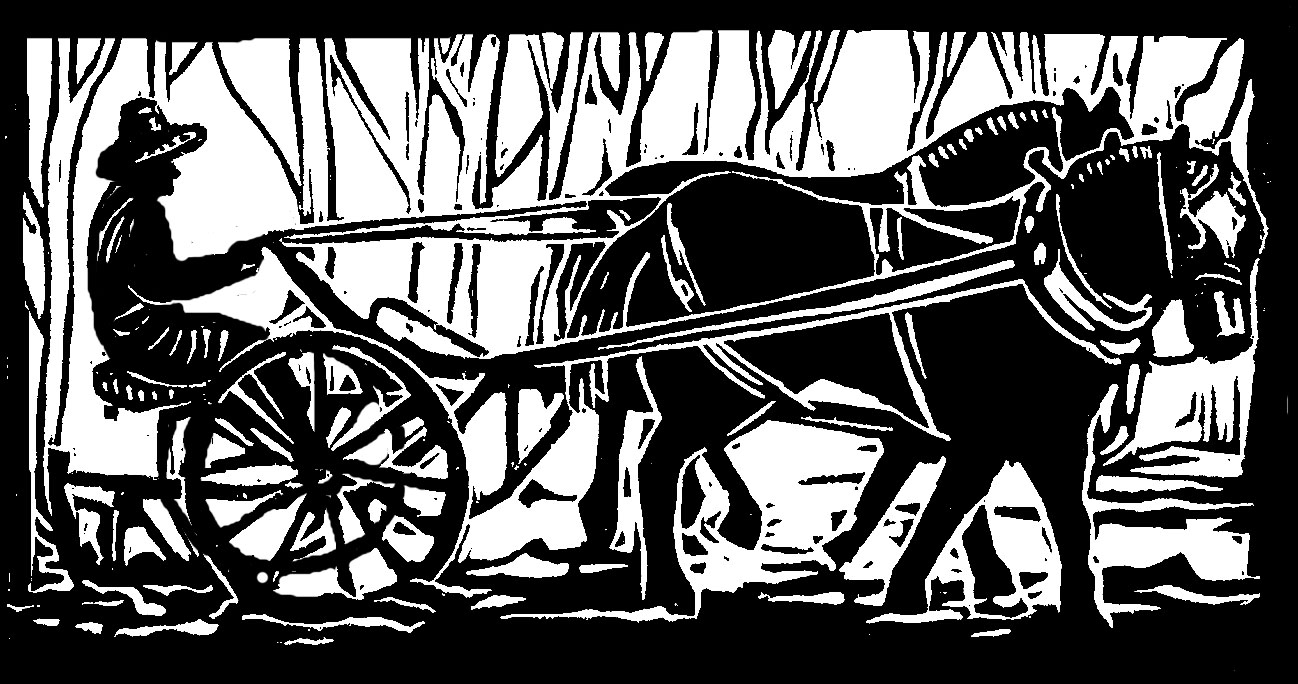I am a stick in the mud farmer. You would think I would be perfect for muddy old March on the farm. I could get good and stuck and stay there. But March likes to keep my on my toes: rain, sun, snow, sleet, mud, ice.
My fellow farmer likes to keep me on my toes too. For example, this year we bought three tons of composted chicken manure, to spread on our hayfields. This is excellent, in the theoretical realm anyway, because it helps feeds the hayfields, which help feed our draft horses, which help feed us. But in the realm of the farm budget, it was not quite such groovy news.
“I've got it all figured out,” said my fellow. “If we spend as much on fertilizer as we usually do buying hay, then the fields will be that much more productive, and we won't have to buy any hay at all. We'll save money, in the long run.”
“It sounds like we'd be spending the same amount of money, in the long run,” said the keeper of the farm budget, i.e., me, the stick in the mud farmer. “Plus we'll have a lot more hay to put up, instead of someone else putting it up, and selling it to us, which is kind of easier, in some ways.”
“I love making hay,” was my fellow farmer's reply, neatly sidestepping the budget committee. After all, most of our farming and writing lives seem to be based more on what we love than on what is easier, or more profitable.
Thus we now have three pallets of bagged, composted manure, waiting patiently until the mud or snow of March wanes. And, of course, we had to buy a fertilizer spreader to distribute this patient fertilizer.
My farmer fellow did his research, asking around, poking at the computer, until he found a used spreader an hour away from our farm. Apparently the spreader had been used to fertilize golf courses, which are prone to extensive water and chemical fertilizer use, so to become a chicken poo farm spreader would definitely be coming up a step in the sustainable living world. The spreader was also metal, sturdy, and well-balanced, as opposed to the tippy plastic cone spreader we had borrowed another year for a liming the hayfields project.
My fellow enlisted the budget committee in inspecting and negotiating for the spreader, knowing that this method had proved effective in the past. It was especially effective this time, as the dealer agreed to less than the price he had quoted on the phone. A bargain, hey? Well, we hope so. Maybe. In any case, we brought the little red metal spreader home. Then my fellow spent a happy afternoon cleaning it up and coating it with lanolin, to keep the rust from getting any rustier.
Well good, I thought, that will satisfy my fellow's yearnings for farm machinery and tools for this season. He's got a nice new project, a pretty nice used spreader, and no reason to want anything more for a while
But it is March. And March is full of surprises.
“Now look at this,” said my fellow enthusiastically the other day. “Isn't this neat?” he showed me a picture on the computer.
“What is it?” I asked a trifle suspiciously, in my budget committee, stick in the mud way.
“It's a broad fork. It's for digging the greenhouse beds. I've been using the pointed shovel to dig, but it doesn't work that great. I'm going to go borrow one of these broad forks from the neigbors, and test it out.”
“You are?” I said, a little taken aback. This is the first I'd heard of a broad fork, and my fellow farmer had already gotten so far in his research as to be borrowing one. Uh, oh, I thought. He has completely figured out the budget committee! The comittee always asks for research, prices, flaws, warranties, comparable models, and says “Can't you borrow one? At least to try it out?”
But already he is borrowing one! How will the committee stall for time? And how will the committee make it through crazy old March, when my fellow farmer is still dreaming about new equipment, rather than spending all his time and energy on keeping our old equipment going, as he does in the high garden season?
The next day my fellow farmer wants me to come to the greenhouse, to see the broad fork in action.
“Nice, huh?” he says. “It's working great. Feel how loose the soil is.”
I test the dug and undug sides with my fingers, a little reluctantly.
“Yeah, it's pretty good,” I say, even more reluctantly.
“You can use it to dig carrots too,” he adds. “And I found one for less than a hundred dollars on the Internet!”
Oh no. Now he's using another trick: compared to the chicken poo and spreader, a hundred dollars seems like hardly anything.
“Now wait a minute,” I say, to my fellow, “I don't think the budget committee is going to be available for the month of March.”
“Why not?”
“Stuck,” I answer. “Stuck in the mud.”
Originally published in the Monadnock Shopper News, March 14 - March 20, 2018
